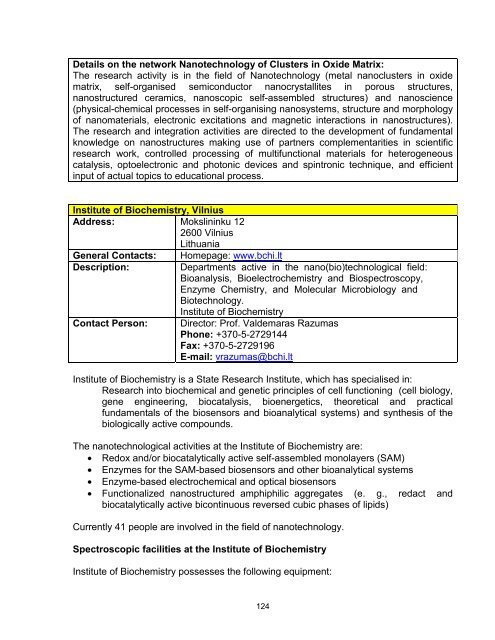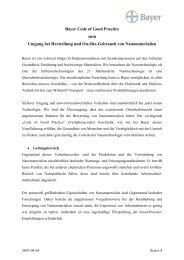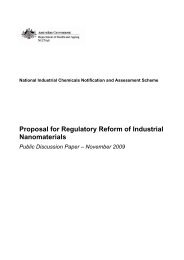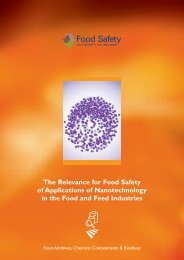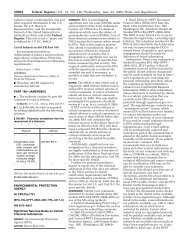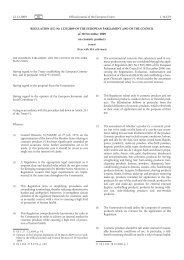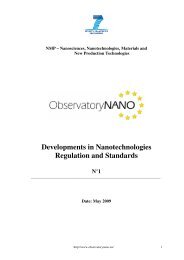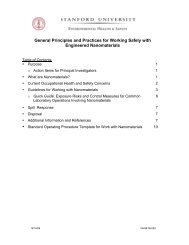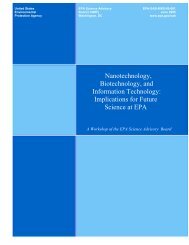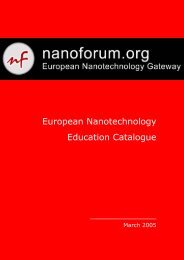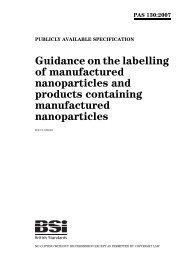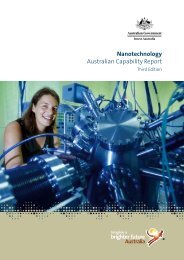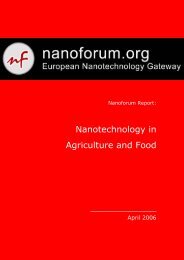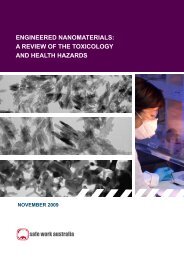Nanoforum - Nanotech Regulatory Document Archive
Nanoforum - Nanotech Regulatory Document Archive
Nanoforum - Nanotech Regulatory Document Archive
You also want an ePaper? Increase the reach of your titles
YUMPU automatically turns print PDFs into web optimized ePapers that Google loves.
Details on the network <strong>Nanotech</strong>nology of Clusters in Oxide Matrix:<br />
The research activity is in the field of <strong>Nanotech</strong>nology (metal nanoclusters in oxide<br />
matrix, self-organised semiconductor nanocrystallites in porous structures,<br />
nanostructured ceramics, nanoscopic self-assembled structures) and nanoscience<br />
(physical-chemical processes in self-organising nanosystems, structure and morphology<br />
of nanomaterials, electronic excitations and magnetic interactions in nanostructures).<br />
The research and integration activities are directed to the development of fundamental<br />
knowledge on nanostructures making use of partners complementarities in scientific<br />
research work, controlled processing of multifunctional materials for heterogeneous<br />
catalysis, optoelectronic and photonic devices and spintronic technique, and efficient<br />
input of actual topics to educational process.<br />
Institute of Biochemistry, Vilnius<br />
Address: Mokslininku 12<br />
2600 Vilnius<br />
Lithuania<br />
General Contacts:<br />
Description:<br />
Contact Person:<br />
Homepage: www.bchi.lt<br />
Departments active in the nano(bio)technological field:<br />
Bioanalysis, Bioelectrochemistry and Biospectroscopy,<br />
Enzyme Chemistry, and Molecular Microbiology and<br />
Biotechnology.<br />
Institute of Biochemistry<br />
Director: Prof. Valdemaras Razumas<br />
Phone: +370-5-2729144<br />
Fax: +370-5-2729196<br />
E-mail: vrazumas@bchi.lt<br />
Institute of Biochemistry is a State Research Institute, which has specialised in:<br />
Research into biochemical and genetic principles of cell functioning (cell biology,<br />
gene engineering, biocatalysis, bioenergetics, theoretical and practical<br />
fundamentals of the biosensors and bioanalytical systems) and synthesis of the<br />
biologically active compounds.<br />
The nanotechnological activities at the Institute of Biochemistry are:<br />
• Redox and/or biocatalytically active self-assembled monolayers (SAM)<br />
• Enzymes for the SAM-based biosensors and other bioanalytical systems<br />
• Enzyme-based electrochemical and optical biosensors<br />
• Functionalized nanostructured amphiphilic aggregates (e. g., redact and<br />
biocatalytically active bicontinuous reversed cubic phases of lipids)<br />
Currently 41 people are involved in the field of nanotechnology.<br />
Spectroscopic facilities at the Institute of Biochemistry<br />
Institute of Biochemistry possesses the following equipment:<br />
124


